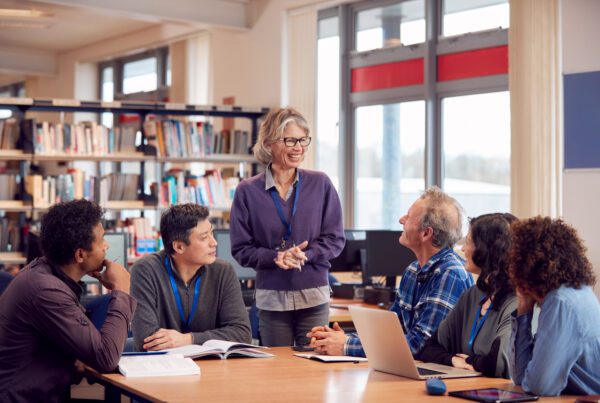 In the dynamic landscape of education, the term “Professional Learning Community” (PLC) has gained significant traction.
In the dynamic landscape of education, the term “Professional Learning Community” (PLC) has gained significant traction.
For educators, it represents more than just a buzzword; it embodies a transformative approach to continuous learning and collaborative growth.
In this article, we’ll delve into the essence of Professional Learning Communities, exploring what sets them apart from traditional professional development and why they are becoming a cornerstone in the realm of education.
Defining Professional Learning Communities
Professional Learning Communities, often abbreviated as PLCs, go beyond the conventional notion of professional development.
Professional learning is an ongoing process that encompasses the acquisition and refinement of knowledge, skills, and competencies specific to the teaching profession. A professional learning community concept, however, takes it a step further.
A PLC is a group of educators who come together voluntarily with a shared goal of improving their teaching practices and, consequently, enhancing student learning outcomes. It is a collaborative, reflective, and action-oriented approach to professional growth.
Unlike traditional professional development, PLCs foster a sense of community and collective responsibility, creating an environment where educators learn from one another, share insights, and collaboratively solve challenges.
Key Characteristics of Professional Learning Communities
Collaborative Inquiry
PLCs thrive on collaborative inquiry, where educators engage in meaningful discussions about teaching practices and student learning. The focus is on asking questions, analysing data, and collectively finding solutions to improve instructional methods.
Shared Values and Goals
Members of a PLC share common values and goals related to student success. The emphasis is on the collective commitment to continuous improvement and a shared vision for enhancing the learning experience.
Reflective Practice
Reflection is a cornerstone of PLCs. Educators engage in regular reflection on their teaching practices, getting constructive feedback on what works and what can be improved. This reflective process is often guided by data and evidence, fostering a culture of continuous improvement.
Action-Oriented Approach
PLCs are not just about discussions; they are about taking action. Educators collaborate to implement new strategies, assess their effectiveness, and make adjustments based on the outcomes. This action-oriented approach ensures that the learning is not theoretical but embedded in practical application.
How PLCs Differ from Traditional Professional Development
While professional development (PD) is a broader term encompassing various activities aimed at enhancing professional skills, PLCs offer a more personalised and collaborative approach. Traditional PD often involves workshops, seminars, or structured training programs delivered externally. In contrast, PLCs are internal, driven by educators themselves, and focus on the specific needs and context of their school or educational institution.
PLCs break down the isolation that other educators may feel in their individual classrooms. They provide a platform for individual teachers to connect, share experiences, and collectively work towards common goals. The voluntary nature of PLC participation fosters a genuine commitment to growth, making the learning process more meaningful and impactful.
The Benefits of Professional Learning Communities
Improved Instructional Practices
Through collaborative inquiry and shared reflection, educators in PLCs gain valuable insights into effective instructional practices. This leads to a continuous refinement of teaching methods, resulting in improved student achievement and engagement.
Increased Teacher Satisfaction
The sense of community and support within PLCs contributes to higher job satisfaction among educators and school leaders. Knowing that they are part of a team working towards common goals enhances morale and fosters a positive school culture.
Enhanced Professional Accountability
PLCs create a culture of accountability, where educators are responsible not only for their individual growth but also for the collective success of the group. This shared responsibility encourages a commitment to the school improvement process.
Tailored Professional Development
PLCs allow for personalised and targeted professional development. The focus is on the specific needs of the educators and the unique challenges of their students, making the learning experience more relevant and impactful.
A More Collaborative Future for Education
In the evolving landscape of education, Professional Learning Communities stand out as a beacon of collaborative learning and continuous improvement.
Moving beyond the traditional boundaries of professional development, PLCs empower educators to take ownership of their growth, learn from one another, and collectively elevate the quality of education. As schools and educational institutions increasingly recognise the value of these communities, the impact on teaching practice and student performance is poised to be profound.
Embracing the spirit of Professional Learning Communities is not just a choice; it is a commitment to a future where education is a collaborative journey of growth and excellence.
At EC by GO1, we offer complete access to K-12 educational resources, creating a professional learning environment that is continually growing and thriving.
Discover more about our professional learning services.
For further information about our resources or for any enquires, contact us today.



